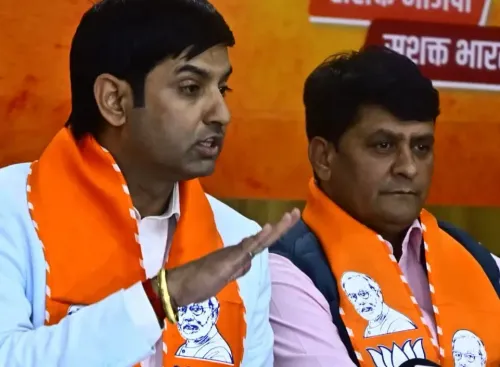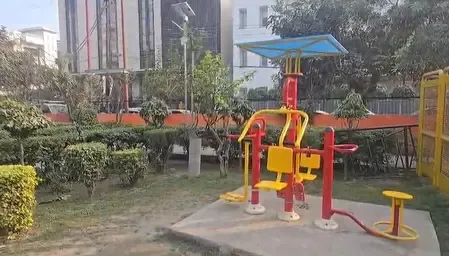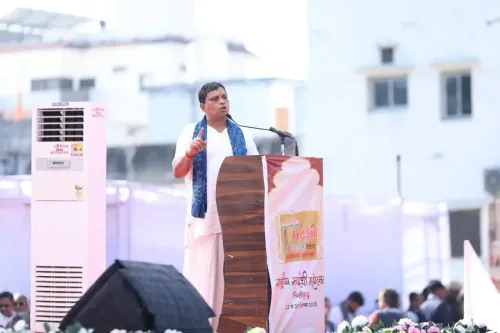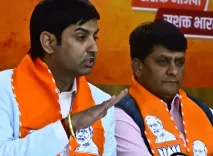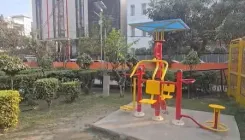Geopolitical, Technological, and Leadership Forces Favoring India as PM Modi Drives Pragati: Insights from Oxford Professor
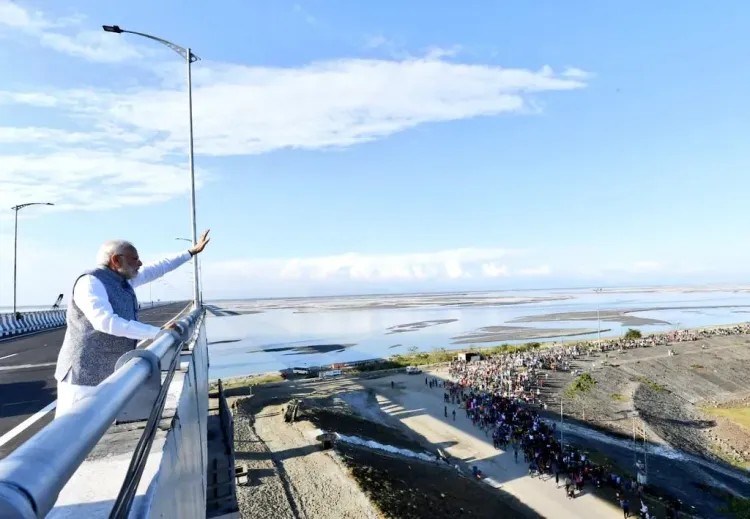
New Delhi, Dec 4 (NationPress) Commending the robust growth of India's economy under Prime Minister Narendra Modi, Oxford University Professor Soumitra Dutta expressed on Wednesday that numerous forces are supporting India in its extraordinary quest to evolve into a Viksit Bharat, aiming for developed nation status by 2047 - marking the country's centennial year of independence.
"India is currently positioned at a significant historical juncture in its development. Numerous geopolitical forces, technological advancements, and leadership qualities exemplified by Prime Minister Modi are collectively promoting development within the nation. Thus, I firmly believe that India is strategically located on this path of progress," Dutta, who serves as Dean at Oxford University's Said Business School (SBS), shared in an exclusive interview with IANS.
Dutta, who has extensively engaged with various governments on global technology and innovation metrics, recently co-authored a study titled, 'From Gridlock to Growth - How Leadership Enables India’s PRAGATI Ecosystem to Power Progress', elucidating how India has revolutionized the advancement of its extensive infrastructure initiatives and social sector programs under PM Modi's leadership over the past decade.
Since its launch in 2015, PRAGATI—an acronym for Pro-Active Governance and Timely Implementation—has acted as a driving force in enhancing India's infrastructure and social sector development. Dutta believes it embodies India’s dedication to overcoming bureaucratic hurdles and nurturing a Team India ethos along with a culture of accountability and efficiency.
"India is perceived as a hub for investment, opportunities, and a significant player on the global stage. It's crucial since India is recognized as a valid contributor to global growth. India has also aided the development of other nations, particularly in the Global South. The Pragati ecosystem offers valuable lessons for leaders in the Global South—in numerous parts of Africa, Latin America, and Asia—that require substantial investments in infrastructure and extensive systemic changes. They too must learn how to implement these projects more effectively, swiftly, and efficiently. The Pragati ecosystem illustrates a pathway to achieve this," he stated.
Progress is already underway as India, under PM Modi, has established specific objectives, such as reaching a $30 trillion economy by 2047, achieving 100% literacy, comprehensive healthcare coverage, and positioning the nation as a global center for research and innovation.
"Gathering and disseminating data regarding large-scale projects is not entirely new. However, executing this at the scale of India's complexity and magnitude is exceptionally commendable. What stands out in other nations is the sustained commitment from top leadership to ensure meticulous project execution details. Yet, within the Pragati ecosystem, Prime Minister Modi has consistently focused on challenging large-scale projects and facilitating their progress. This is truly remarkable, and the fact that he has maintained this focus over the years has fostered a culture where people recognize that these projects receive his attention," Dutta remarked.
The Pragati platform was inspired by a similar initiative PM Modi established in 2001—State-Wide Attention on Grievances by Application of Technology, or SWAGAT—during his tenure as the Chief Minister of Gujarat. Over time, the Prime Minister's hands-on involvement has been a vital aspect of the platform's success.
Dutta highlights the Bogibeel bridge in Assam, which traverses the Brahmaputra River between the Dibrugarh and Dhemaji districts, noting its immense economic and strategic importance for both the region and the nation.
"Large infrastructure initiatives typically encounter issues regarding time and budget overruns. However, the Pragati ecosystem has effectively helped to unblock several major projects that had been stalled for extended periods. For instance, the bridge over the Brahmaputra River in Assam was once deemed unbridgeable, and the project to construct a bridge with road and rail access was initially approved in 2002. By 2012, little progress had been made, and regional development was at a standstill. However, following PM Modi's review of the project via Pragati in 2015, significant advancements began. The attention given to project execution from the country's top leadership significantly contributed to its completion by 2018," Dutta explained.


